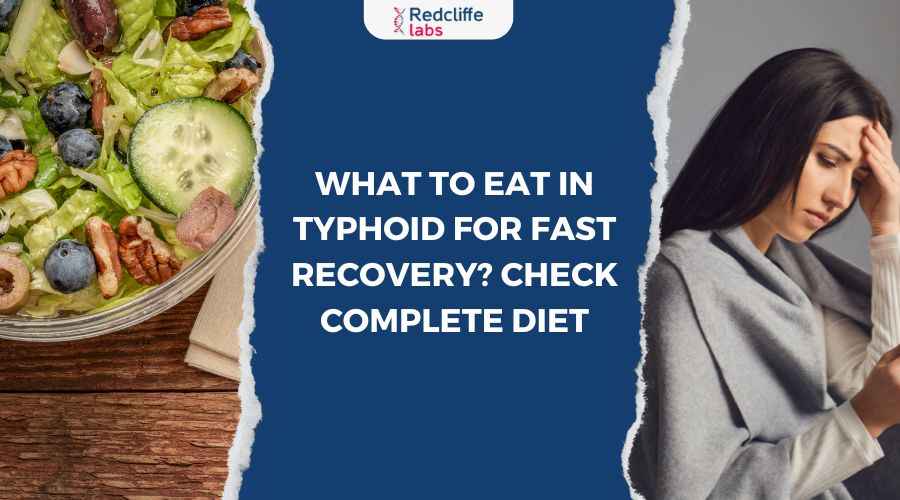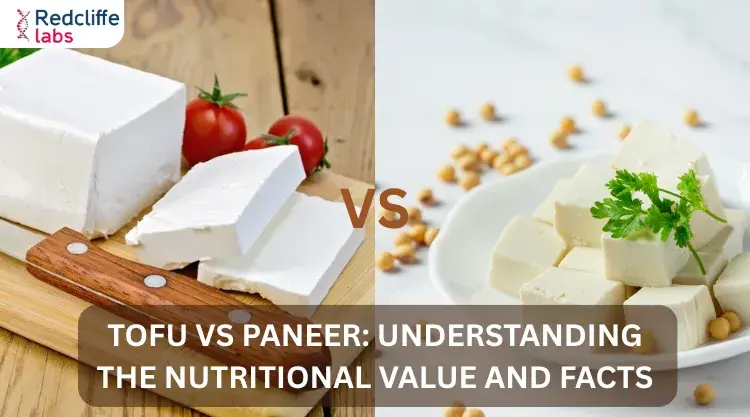What to Eat in Typhoid for Fast Recovery? Check Complete Diet

Medically Reviewed By
Prof. Ashok Rattan
Written By Kirti Saxena
on Feb 19, 2025
Last Edit Made By Kirti Saxena
on Jul 19, 2025

Have you or your family ever suffered from Typhoid fever?
Many of you might have said Yes.
Typhoid is a type of fever caused by Salmonella typhi. The infection spreads through contaminated food, water, or close contact with an infected person.
People usually show symptoms like headache, fever, body pain, rashes, etc. Proper treatment and care are required to manage Typhoid fever. One important part of recovering from Typhoid fever is diet. Therefore, it's essential to understand nutrition's significant role in the recovery process. In this article, we will examine some of the best foods to consume and those to avoid for a faster recovery.
What are some common symptoms of Typhoid?
Recognizing its symptoms early can lead to prompt treatment. Common symptoms include:
- High Fever 104°F
- Weakness and fatigue
- Stomach pain
- Headache
- Loss of Appetite
- Constipation or Diarrhea
- Cough
- Rashes.
If you or someone you know has these symptoms, you should seek medical attention promptly.
What Foods to Eat During Typhoid Fever?
It is important to take a balanced diet to support faster recovery from Dengue. Here are some food options you should eat-
- High-Calorie Foods- Typhoid can lead to significant weight loss and weakness. Consuming high-calorie foods helps replenish energy levels. Opt for foods like boiled potatoes, rice, and bananas.
- High-Carbohydrate Foods—Easily digestible carbohydrates provide quick energy. Include porridge, daliya, white rice, pasta, and white bread.
- Protein-Rich Foods: Proteins help repair tissue. Chicken, fish, eggs, tofu, and lentil soups are good alternatives.
- Cooked Vegetables—Steamed or boiled vegetables are easier to digest. Carrots, green beans, beets, and boiled potatoes are good options for typhoid.
- Fruits- Fruits like bananas, melons, and peeled apples are good for Typhoid fever. These provide essential vitamins and are gentle on the stomach.
- Hydration—Fever can cause dehydration. Drink plenty of fluids to stay hydrated. Some options include coconut water, lime water, herbal teas, and others. These not only prevent dehydration but also supply essential electrolytes.
- Dairy Products- Consume low-fat dairy products like yogurt and milk. These foods are rich in protein sources and help in digestion.
What should you eat in typhoid for fast recovery as a vegetarian?
Here are the Typhoid food options for vegetarians-
- Daliya
- Rice
- Boiled Potato
- Moong Dal
- Paneer
- Tofu
- Carrots
- Green Beans
- Bananas
- Apples
- Coconut Water
- Soups
- Herbal Teas
Important Blood Test To Diagnose Typhoid
Here are some important blood tests to detect Typhoid-
- Typhoid Test IGG & IGM
- Typhoid DNA Test By RT PCR
- WIDAL Test
Foods to Avoid During Typhoid Fever
Here is the list of Typhoid foods not to eat for faster recovery. Avoid-
- High-Fiber Foods- Foods rich in fiber can cause stomach discomfort and may cause bloating. Avoid whole grains, raw vegetables, and legumes like lentils, chickpeas, and kidney beans during typhoid.
- Spicy and Oily Foods- Spices and oily foods can irritate the digestive tract. Therefore, avoid consuming fried items, zesty curries, and oily foods.
- Raw Vegetables and Fruits-Raw vegetables can be harder to digest. It's best to consume cooked vegetables and peeled fruits.
- Caffeinated Beverages- Avoid drinking too much caffeine as it can lead to dehydration and may irritate the stomach lining. Opt for herbal teas or plain water instead.
- High-Fat Dairy Products: Full-fat milk, cheese, and cream can be difficult to digest. During your recovery, choose low-fat or skimmed versions.
- Nuts and Seeds- Avoid consuming nuts as they can be hard to digest and may cause discomfort. It's best to avoid them until recovery is complete.
The Final Words
Recovering from typhoid fever can take time. Some people recover within 7-14 days, but if the condition is critical, it might take up to 15 days to 1 month to complete recovery. Consume a diet rich in nutrients and easy to digest so that it won't irritate your stomach. Always consult with a healthcare professional if you are experiencing the symptoms of Typhoid, take appropriate blood tests to diagnose Typhoid, and start your treatment as early as possible to avoid complications.



